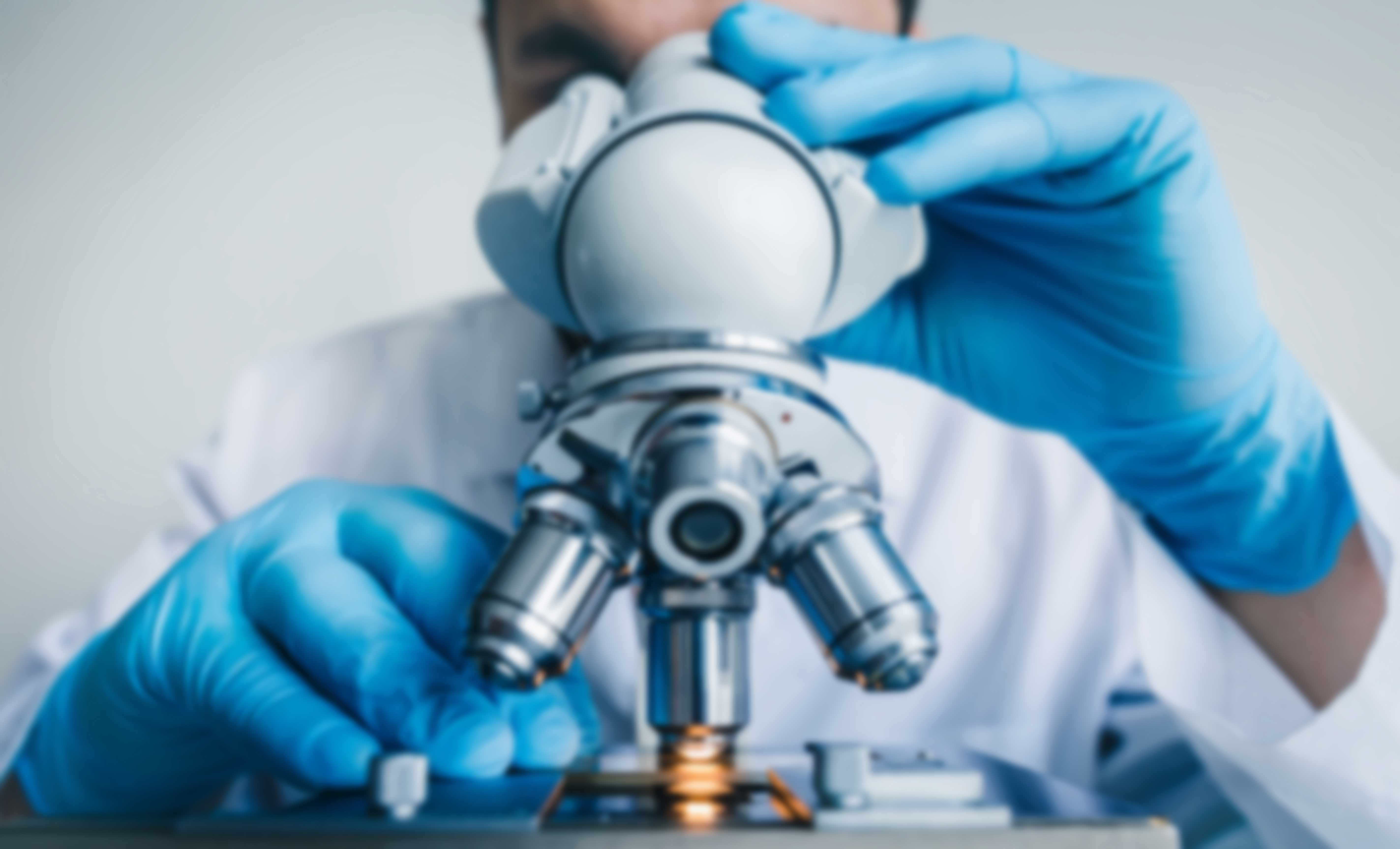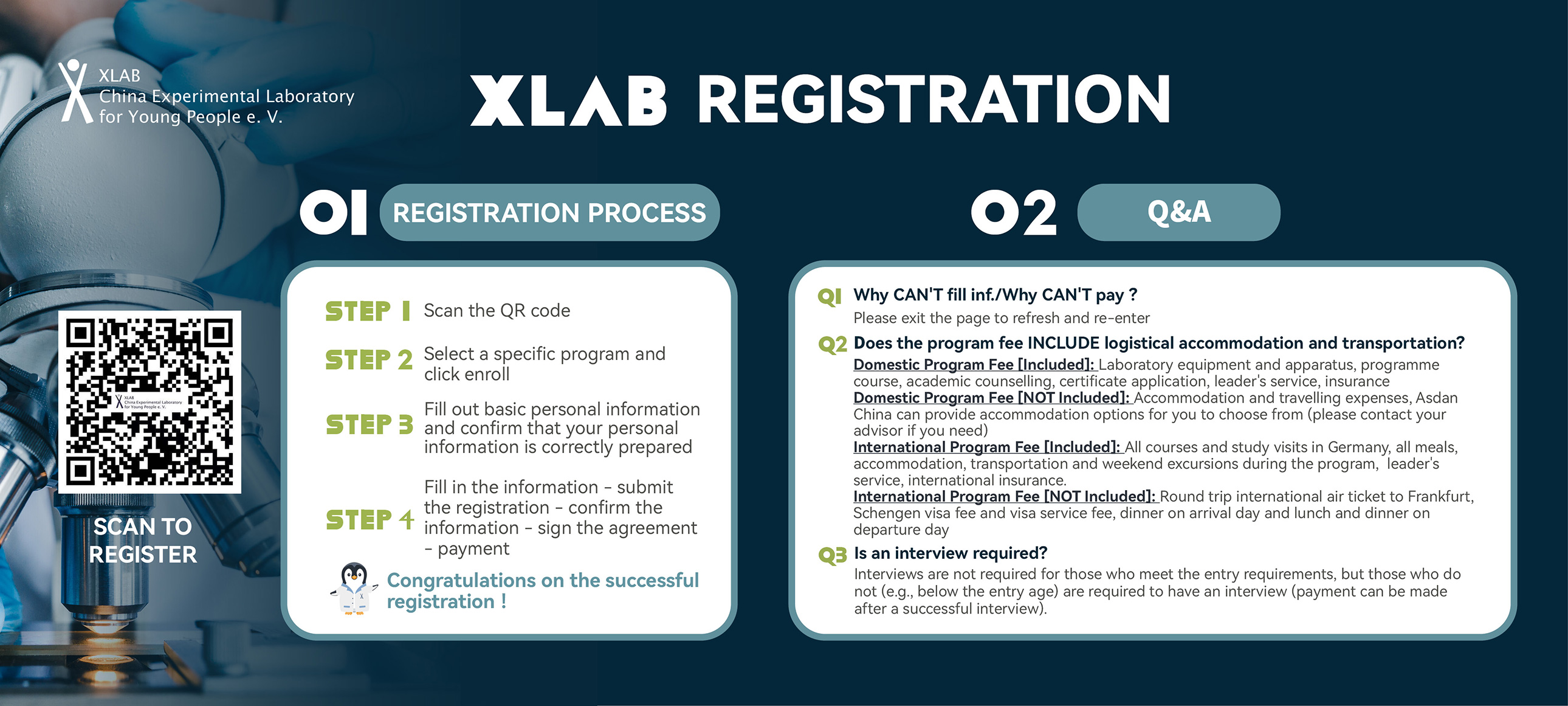Introduction



The XLAB program originates from the University of Göttingen in Germany, known as the "Cradle of Nobel Laureates." Since its establishment in 1737, the university has produced 45 Nobel Prize winners, ranking first in Germany. Renowned modern and contemporary scientists such as Gauss, Oppenheimer, and Bohr have studied or taught there. The XLAB Experimental Lab is designed for outstanding young individuals worldwide. Over nearly twenty years of development, it has become one of the most popular research programs for high school students, serving as a growth platform for young scientists. In 2017, XLAB established a strategic partnership with ASDAN to provide Chinese students with a genuine laboratory research experience, fueling their passion for science. XLAB program covers cutting-edge subjects across over 30 subdivisions, including biomedical science, biology, chemistry, physics, and computer science. It allows students to engage directly in frontline research, fostering scientific thinking and exploratory spirit and aiding their future academic and research pursuits.
XLAB实验室科研项目 邀请函

亲爱的同学们,
20年前,我第一次提出把实验室科研项目带入高中,以此提升学生的科学实践能力。这个想法很快得到德国政府的大力 支持,因为我们国家急切希望能改革自然科学教育,让更多学生爱上自然科学,并在未来的高等教育中选择某个科学领 域进行深入的研究。1999年我们成立了我们第一个XLAB项目实验基地,立即受到德国非常多高中的青睐。为了能承接 更多学子体验大学水平的实验,德国科普协会2000年出资在德国哥廷根大学建立了第一栋专属于XLAB项目的实验楼。 迄今为止,XLAB项目已经有来自45个国家,每年超万名青年学子在此体验了高中课堂中不曾体验过的高端实验。
近几年来,XLAB实验室科研项目着眼于国际范围,其独特的理念广泛地被德国、欧洲及世界范围内的高中生所接受。该 实验室项目成功的秘诀在于:专业性、集中性和国际性。XLAB的课题是高中科学教育的延伸,涵盖生物疫苗、药物医学 研究、纳米生物、新能源等跨学科的前沿课题。在其课程教授中,由经验丰富的科学家们亲自设计这些实验,并且学生 们可以在国家先进的实验室动手操作;而理论课程则通过集中的、有重点的进行课堂补充,这在很大程度上给学生创造 一些发现自然规律、并用实验进行验证、从而推翻一些理论假设的机会。这种理念与学校的科学教育完全不同,我坚信, 那些具有天赋的年轻人肯定能迎接这样的挑战。
我的梦想是在未来20年能把XLAB的理念与教学方法带到世界各地,让更多的高中生能浸入式体验现代科研,使他们 积极主动去学,从而锻炼他们的独立性、切实提升研究与实践能力、专注性和忍耐力,为人类未来培养更多的科学家。 XLAB很高兴能与ASDAN中国达成战略合作,为更多的中国高中生提供不同于常规课堂教学的科研思维和方法训练,获 得完全不一样的学术收获。
我们期待你的加入!
德国哥廷根XLAB 项目创始
Why Us
History
XLAB has a 20+ year history. It was initiated by Professor Neher of the University of Göttingen in Germany and strongly supported by the German government and the University of Göttingen. XLAB, centered around high-end scientific experiments, is widely favored by over 10,000 students yearly. XLAB has established practice centers worldwide, aiming to expand this unique concept and teaching method to reach more students.
XLAB aims to enable more people to learn and experience the joy of science, encouraging them to explore the mysteries of science and consider how to use science to solve human problems. Therefore, XALB's subjects are generally more complex in physics, biology, or medicine. Instead, they focus more on interdisciplinary, cutting-edge topics such as genetic engineering, medical research, nanobiology, medical chemistry, high-energy physics, and more.
Subject
Experiment
Experiments are the core of the XLAB. Each participant can enter advanced laboratories to conduct safe experiments, analyze data, and write experiment reports. Over six hours of scientific research daily enhances students' scientific knowledge and logical thinking and cultivates concentration and endurance. Students will be able to experience the work content and status firsthand and consider whether to choose a research direction in future education.
The courses in XLAB are unique. They consist of four key modules: Subject Introduction and Program Thinking, Scientific Research Teaching, Laboratory Operations, Experimental Data Analysis, and Research Report Writing. All courses are taught in small groups of 10 to 25 students.
Course
Faculty
Experts are invited to design experiments and teach students since the topics and content of XLAB exceed the curriculum of high schools and are specialized in specific research areas. Relevant scientific research institutions support XLAB China and provide an in-depth academic experience for Chinese students based on its unique teaching methods and experimental requirements.
Two authoritative certificates are available: the XLAB Program Certificate of Participation, which details the experimental content and is signed by instructors. Students will complete an academic report containing experimental results and data analysis to apply for the ASDAN "Science Award" Certificate for 30 credit hours of study officially accredited by UCAS.
Certificate
Research
XALB provides invaluable research scenarios for students who plan or are currently engaged in natural science research-oriented learning, such as EPQ or scientific papers, to implement their research plans and participate in hands-on scientific research. Experimental reports can be considered as part of their research achievements.

